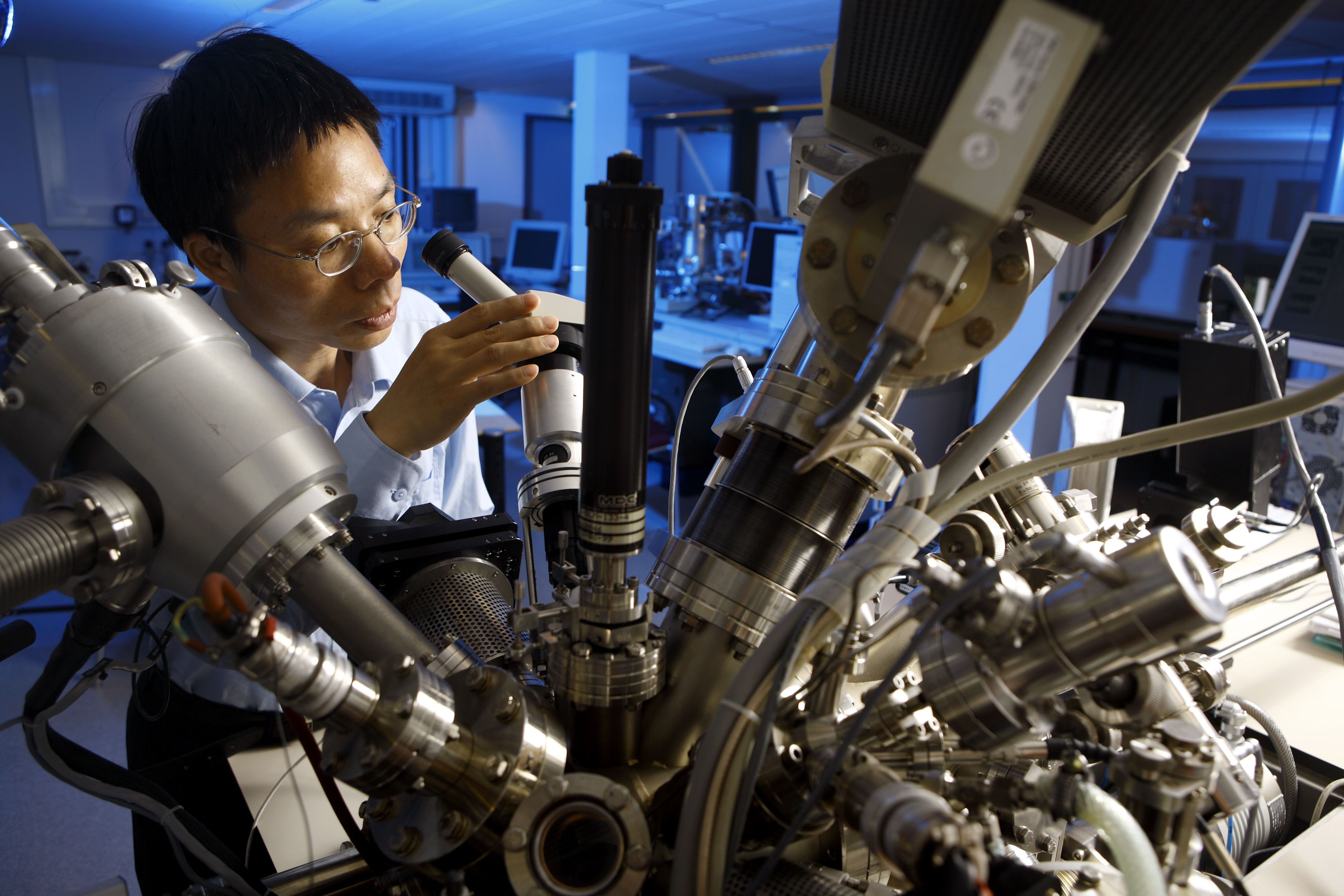MSc Materials Science Engineering
Materials Science & Engineering is an interdisciplinary study focusing on the relationship between structures and behaviour of materials (science) and the design of these structures to produce predefined properties for specific applications (engineering). Students consider materials over a wide range of length and time scales, from the behaviour of collections of individual atoms through to macroscopic structural and functional properties and from raw material processing through materials production and application to failure and recycling.

Introduction week
More information?
Information concerning the introduction week programme will be sent 1-2 weeks before the start of the academic year.
The introduction week for the Materials Science and Engineering masters programme will take place in the first week of the academic year.
The introduction is obligatory and will include:
- An introduction to the department and research focus
- An explanation of the curriculum
- An introduction to the staff
- A safety briefing
- A laboratory tour
- Excursions and industrial visits
Make sure you register in time via Studielink!
Start studiejaar / Start Academic year
2 september 2024First Year
In the first year a core programme of 41 EC offers a firm grounding in Materials Science. Subsequently students choose a specialisation (34 EC), which is a consistent set of courses focussing on a particular topic.
This can be either one of four predefined specialisations, which may also include an internship, or students can choose to compose their own specialisation. Finally students undertake a literature study (10 EC) and an independent scientific investigation leading to a Master's thesis (35 EC).
-
The focus is on the usage of materials in applications and structures by paying attention to processing, joining, selection and failure of materials. An obligatory internship is part of this specialization.
Finally students undertake a literature study (10 EC) and an independent scientific investigation leading to a Master's thesis (35 EC).
-
Metals Science and Technology (MST)Attention is paid to the design and performance of metallic microstructures by considering aspects like phase transformations, strengthening mechanisms and processing and by studying computational materials science and corrosion science.
Finally students undertake a literature study (10 EC) and an independent scientific investigation leading to a Master's thesis (35 EC).
-
Materials for Sustainable Development (MSD)The emphasis is on materials engineering in the context of sustainable resources (materials and energy) and environmental impact. Concepts such as clean energy technologies, high temperature performance and recycling of materials are discussed.
Finally students undertake a literature study (10 EC) and an independent scientific investigation leading to a Master's thesis (35 EC).
-
Students may compile their own specialisation on any material class or aspect of material science that attracts their interest (subject to approval). TU Delft offers more than 80 materials related master courses. The specialisation should have a minimum of 14 ECTS following a common theme.
Second Year
- Obligatory / elective specialisation courses (34 EC)
- Literature Survey (10 EC)
- Master thesis project (35 EC)
Students can choose their master thesis project from those proposed within the department, those proposed by other departments, other faculties, other universities or from projects offered by industrial collaborators.
Recent projects include:
- Investigating palettes used in the painting of Rembrandt’s Man with the red beret using X-ray fluorescence scanning and t-distributed stochastic neighbour embedding
- Passivating Electron Contact Based on a Silicon Oxide Layer for Heterojunction Solar Cells
- Dislocation networks in precipitation hardened aluminium alloys during plastic deformation. The effects of dislocations on the anelastic behaviour and the evolution of dislocation networks in an AA7075 aluminium alloy.
- Low cost inkjet fabrication of glucose electrochemical sensors based on copper oxide
- Density determination of tropical hardwoods with the Resistograph
- Reheating Quenching and Partitioning Microstructures to Modify Phase Fractions
- Tungsten Recrystallization Behaviour under Steady and Transient Hydrogen Plasma Loading
- WAAM Martensitic Stainless Steel: Process Optimization & Resulting Weld Geometrical Characterization
Master Assignments
Get inspired by looking at some of the research of the department of Materials Science and Engineering
Research - department MSEAdditional information
Contact information
Students are encouraged to join the student association <link en departments materials-science-and-engineering about-mse student-association-tubalkain>“Het Gezelschap Tubalkaïn”, which organises visits and events for students and represents their interests in the education programme and management of the department.